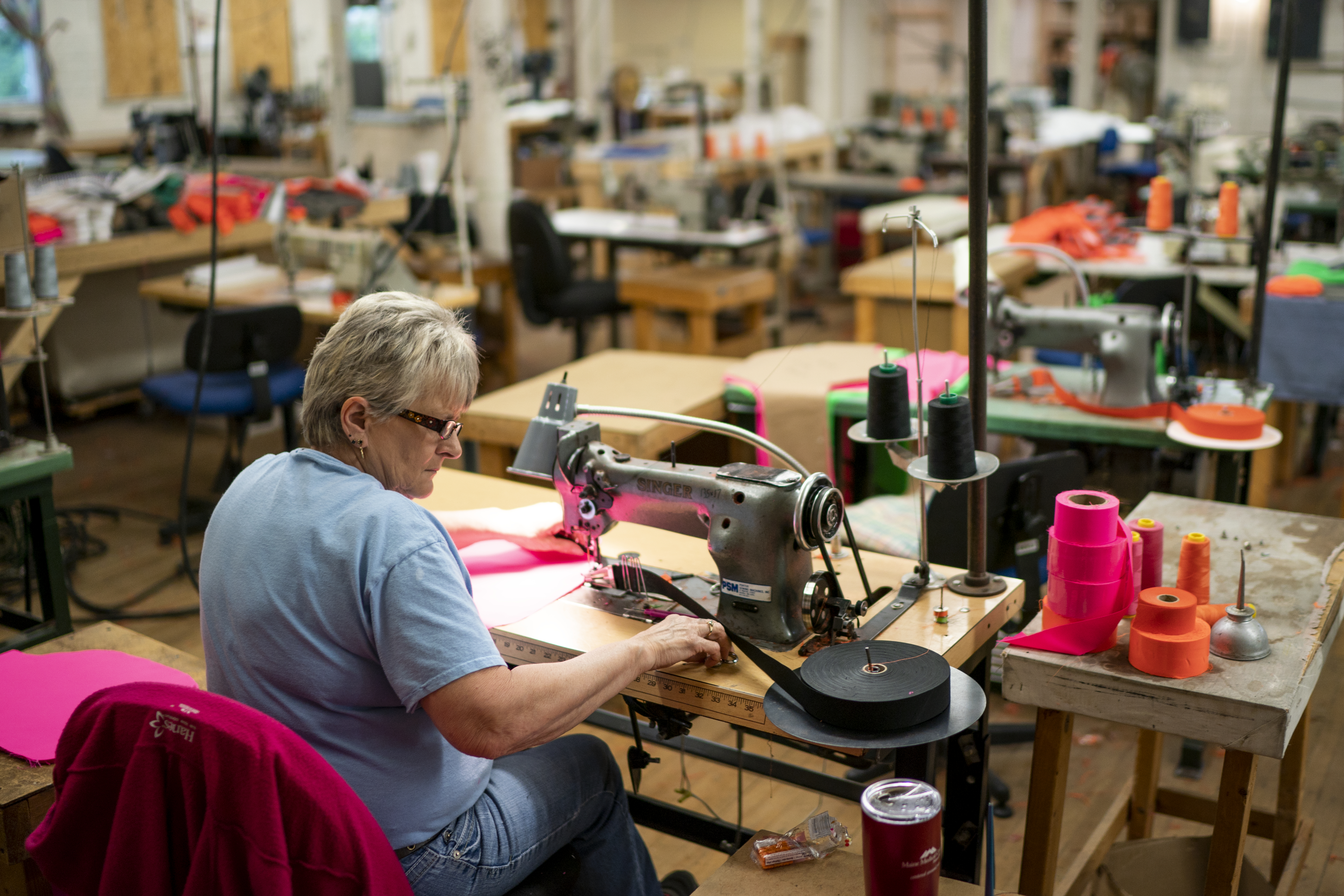June 29, 2017
Dog Not Gone
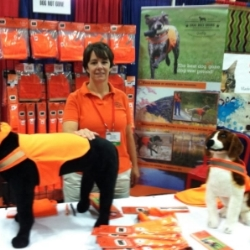
Mainers love the natural beauty of our state, and spending time outdoors. Farmers, hikers, hunters, fishermen–all are aware of the changing environment and growing tick population. For Julie Swain, her love for her pets, and the looming threat of Lyme disease motivated her to create a protective dog vest with insect repellent and visibility properties. When her friends saw the high quality vest and wanted the product for their own pets, her small home-grown business Dog Not Gone was launched. Production of the specialized pet apparel remained a side project for 20 years, selling vests at local craft fairs around Maine. LLBean’s interest in the dog vest pushed Julie to expand production and outsource manufacturing at the former Dirigo Stitching mill in Skowhegan. Product lines have since expanded to include high-visibility and insect repellent apparel for dogs, horses, and more recently, humans.
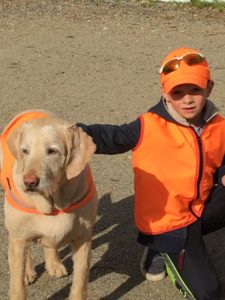
Julie heard that CEI helps small businesses with loans and investments, and helps build business-to-business connections. “With the introduction of the human line of tick repelling apparel, we needed help,” said Julie. The tick repellant dog vest is the best selling product, but now, Julie explained, people are looking for ways to keep ticks off themselves. In-store sales spiked to 75% human apparel sales versus 25% dog apparel sales. CEI’s financing supported the expansion of the tick repelling human apparel line.
Just two years following the initial manufacturing outsourcing, the Dirigo Stitching mill announced that it would be closing its doors, ending a long history of textile manufacturing in Central Maine. Julie and her husband Bill had two options: send the products to Asia for manufacturing, or buy the mill. With a commitment to local manufacturing and their own community, they decided to take the risk and purchase the mill, taking on the manufacturing and production of Dog Not Gone products as well as Maine Stitching Specialties, a textile business that specializes in American flag production. The acquisition of the mill meant taking on the management role for both of the businesses.
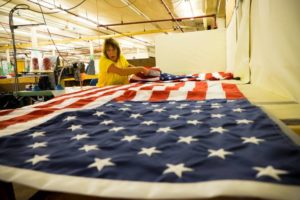
“We believe in local manufacturing. I used to work for a company where production was sourced in Mexico,” said Julie. “There were always quality and delivery problems. We make everything here, and most of our customers are New England based. We wanted to support the local economy and keep everything close to home.” The purchase of the textile factory preserved eight jobs, and has given the business lots of space to expand. All materials they use are sourced in the US.
“Business growth and jobs means keeping Mainers off unemployment and assistance,” remarked Julie.
With multiple businesses operating out of the same mill, the Swain’s have a dynamic team of employees who are accustomed to job-sharing, with some employees who have been working in the factory for 30 years. Following the loan closing with CEI’s financial team, Dog Not Gone met with CEI’s Workforce Development team to discuss anticipated growth and provide potential strategies for stitching recruitment and training opportunities.
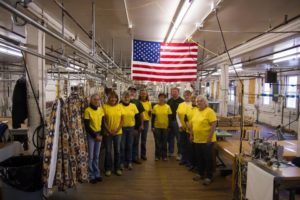
All Dog Not Gone and Maine Stitching Specialties products are available in the newly opened factory outlet store in their downtown Skowhegan mill at 40 Dane Avenue. “We’ve worked for a long time to build the business and get the structure and product right. The demand is there now,” said Julie. Over 54 million US households own a dog, and another 2.5 million own a horse. As the concern for Lyme disease increases, the Swain’s are already seeing greater sales and a variety of new retail customers. Watch for their products which are sold at local Maine businesses and national chains including LLBean, Reny’s, Orvis, Tractor Supply Co., Agway, and Wal Mart.
